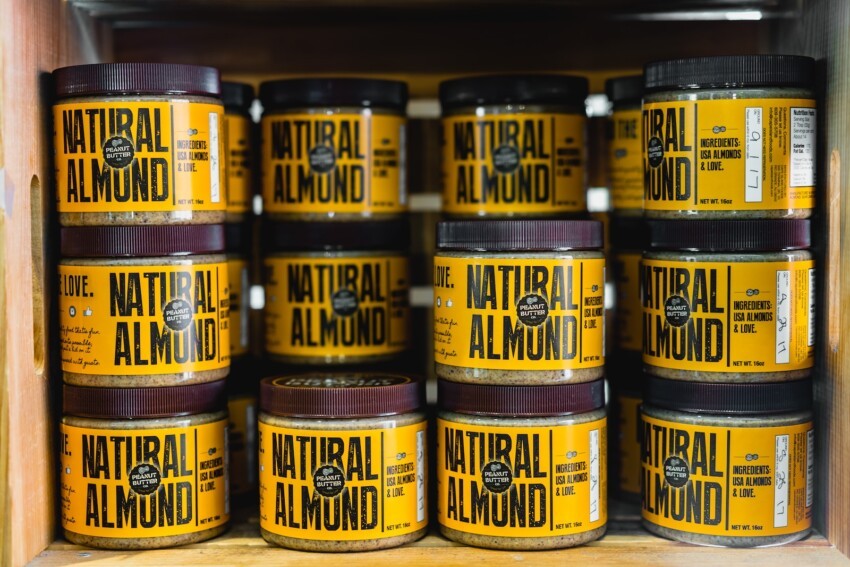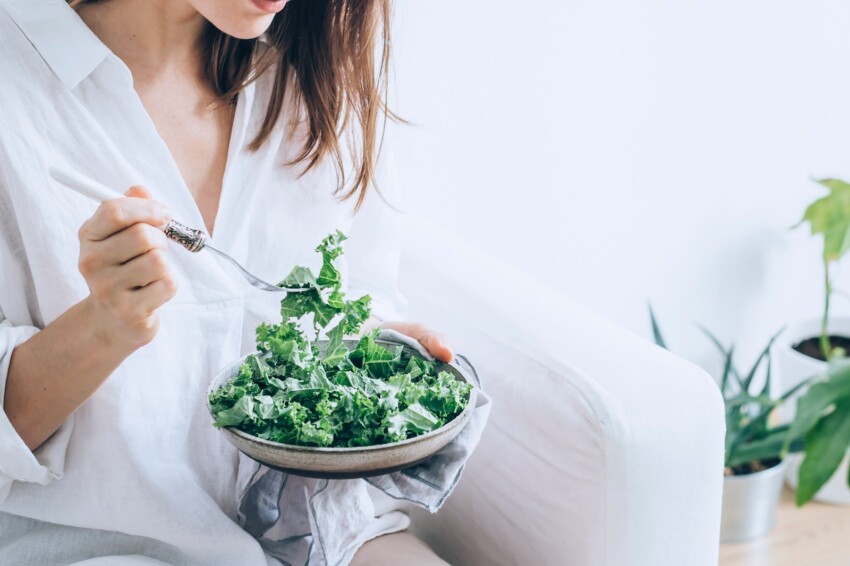Nutrition is the #1 medicine you can:
- Rely on.
- Depend on.
- Guarantee for results.
- Trust.
And expect to have some sort of effect, good or bad, depending on your own actions, choices, and decisions.
It’s the ONE thing that:
- Doctors.
- Nurses.
And the healthcare industry doesn’t push enough, or sometimes dismisses and downplays in favour of drugs, slow poisons, needles, prescriptions, and other profiteering products.
That’s why you NEED to ask yourself important nutrition questions before eating.
It’s also necessary if you’re looking for:
- Specific results.
- Certain outcomes.
And if you’re trying to achieve certain goals that no drug, needle, or tablet could ever compare to in the long run if maintaining your health is priority #1.
Let’s talk about it.
Nutrition questions to ask yourself for life-changing results:
1. Will I feel sick after eating this?

I think the main problem with nutrition, food, and diet in general, is we’ve been forced fed so much bullshit for so long, that we just keep eating whatever we’re recommended.
This is regardless of HOW that food makes us feel in the grand scheme of things.
Take for example the guidelines for sugar, We’re told to “aim” for the RDA for sugar, but in reality, this is the reason for feeling sick a lot of the time.
But we do it anyway because the experts said so, right?
It sounds daft but it’s critical to think about what you eat and to use your brain instead of being passive and doing things with an unconditioned mind (sleepwalking basically).
If it makes you feel sick, stop eating it. Your body is giving you a clear sign you shouldn’t ignore.
Related: Unhealthy High Carb DINNER Foods I Used To Eat
2. Will this setback my progress?

A ketogenic diet is a good example of this idea. If you’re doing well with the ketogenic diet and it’s helping you in some way thanks to carb cutting, you always have to ask this question before consuming whatever it might be.
That could be a supplement, a vitamin (so-called), a drink, or a certain type of food. If it’s gonna set you back and destroy your progress, why do that to yourself?
The same is true if you’re overweight and you’ve been doing well for weeks cutting out the BS and losing the weight. If what you decide to eat on any given day will setback your progress, that leads to unnecessary problems.
First of all, getting back into the habit and the swing of things becomes harder. Then you’ll feel worse, both internally and mentally because of your decision, and this spirals into even more nonsense.
If you insist on eating whatever the food is, measure how much this will setback your progress if at all possible.
3. Is this food processed?

By processed I don’t mean it ran through a machine, ended up in a package, and was shipped to a supermarket.
No, I mean is the food you’re eating the real thing or not?
In the USA they fatten up cows with a corn-fed diet, which is unnatural, and then that ends up in the stomachs of many Americans who develop all sorts of health problems.
This is an example of processed food (unnatural).
Another example would be buying fruits from the supermarket which has been sprayed with all kinds of chemicals, pesticides, and so on.
Is the manga you’re about to eat the real mango that grows in tropical countries, or an imitation that’s processed and BAD for your health? (The answer is yes if you’re in a Western country).
The truth is a lot of health problems come from processed foods, not ancestral or genuine foods that haven’t been manipulated in any way.
This is the source of allergies, and you can become your own guinea pig to see it for yourself without relying on the science despite that being helpful.
4. How much sugar and carbs are in this product?

Shockingly, a lot of people walk into the supermarket and NEVER question what’s in the product as far as nutritional value.
This is crazy.
Some people do it, but those people don’t understand what it is they’re looking at, and are in fact being fooled by what they see because of false marketing messages.
Let’s take a pack of sugar-free sweets as an example. It says “sugar-free” so you immediately think it has no sugar.
You look at the back of the pack, and it shows there’s 0 sugar within the packet. Most people now assume that’s the full story.
Until you realize the carb section of the packet is around 70-90g of carbs per 100g or whatever it is your country measures grams by with food.
So in reality, this is a sugary product since those carbs turn into sugar once you eat it.
So you can safely throw it away or avoid buying it since it’s NOT a sugar-free product at all. And can’t be used as part of a healthy lifestyle.
5. How many ingredients are in this food?

Sometimes it’s more important to look at how many ingredients are in a type of food, instead of worrying about WHAT those ingredients are.
Many don’t know about the ingredients by name, and this is why most ignore it and buy the food and then eat it anyway, only for it to be detrimental to their health down the line or soon enough.
But here’s an easy rule to follow besides asking this nutritional question:
- If it has one ingredient, it’s 100% certified.
- If it has two or 3 ingredients, it’s probably justified (for example, fish + olive oil).
- If it has 5-10 or more ingredients, this is ALWAYS a cause for concern.
- Any more than 10-20 is a major red flag.
If you buy chicken, that should be the only ingredient. If it’s bacon, it will be bacon + nitrates.
If you buy cheese, it should be 100% cheese unless it’s cultured, in which case – milk + lactic culture.
Anything like protein bars is either off limits, or worth testing to see how your body reacts to it, but the latter is only helpful if you understand exactly what each ingredient is and what it does.
6. Does this food have any genuine science behind it?

Sometimes there’s a strong tendency to:
- Assume.
- Believe.
And even associate certain foods with “science” as far as the claims being legitimate, despite the fact that it’s nothing more than a simple claim that was repeated enough times to be seen as true.
One example seems to be Celery Juice. When you read the articles and watch videos on this topic, you’ll hear words like “it may” do this or it “could” do that.
Never do you hear definitively that the food WILL do what’s claimed, like how Sugar will definitively make you unhealthy if consumed in excess.
Asking this question is good because it makes you think before you act emotionally and impulsively.
That doesn’t mean the food you eat HAS to have scientific evidence behind it because for one reason or another, agendas are at play and “they” have no interest in doing studies on particular foods to avoid results that conflict with certain narratives (fat is bad, etc).
But it’s still something to think about if guarantees mean a lot to you as far as nutritional value, true benefits, and proven results.
7. How much anecdotal evidence is there?

You can’t always rely on science for one obvious reason: the science isn’t there yet. If there are no studies, research, or evidence yet, there’s nothing you can do about it.
So you focus on what you can control in this scenario.
One element being the anecdotal evidence about certain foods helping (or hurting) in certain ways.
Take the Carnivore diet for example. Not many “new” studies except tons of backlash and controversy, and yet anecdotally there are 100s of thousands of proven examples if you look.
That’s a significant amount of anecdotal experiences that simply can’t be ignored for how it benefits you (or “could” benefit you).
Anecdotes are only dismissed by gatekeepers and elitists who pedestalize science as if it’s the ultimate truth that’s forever unchanging, which is untrue for topics like nutrition.
Relevant: Hidradenitis Suppurativa And The Carnivore Diet: The Ultimate Cure You Never Knew About?
8. How much do I need to eat to feel satisfied?

This question is more important than it seems for a reason. When you look at mainstream advice for eating, they usually claim you need:
- A certain portion size.
- A certain amount of each food.
- And so on.
This is generalized advice rather than individualized, so it’s problematic.
Asking yourself how much do I need to eat to feel satisfied is important because only YOU know what that answer is.
Some can eat more than others, some need less, etc, all based on your physique, individual problems, and more.
If 100g of cheese is enough to make you satisfied, the guidelines don’t mean sh*t. Because it doesn’t apply to YOU.
If 400-500g of beef (which is a lot to be fair) is all you need to carry you through the day, then that’s all you need to eat and you’ll get substantial amounts of nutrition as well as feel satisfied.
5 eggs and a small block of cheese is enough for breakfast for me. For you, it could be less.
When you know how much you need to feel satisfied through experimentation, you’ll feel better, have more energy, have less digestive problems if at all, and your health will be optimal.
9. How much fibre do I really need, if at all?

This nutrition question is based on you, the individual, rather than the nonsensical guidelines that are pushed onto the public as if it’s the holy grail.
For me, I don’t need any fibre at all. Especially not to feel full or whatever the benefits are (like bowel movements, which is misleading).
Fibre didn’t fix my constipation either, so I stopped chowing down vegetables so much and for other reasons which only benefited me.
What about you? Do you need any fibre at all, or are you shoving it down your throat just because you were told to despite how awful it may be making you feel?
If all is well, then the question becomes how much is necessary to feel good about myself without side effects?
Only you can find the individual answer.
10. Is this food inflammatory despite being nutritious?

There’s an easy way to find out if the food you’re eating is inflammatory in any type of way.
- Does it cause you to flare up and break out with spots?
- Do you get whiteheads as a result?
- Do you feel constipated after eating a certain food/foods?
- Do you have stomach pains?
- Does your heart rate rise drastically?
- Do you get headaches?
Basically, if you notice anything that isn’t good after eating a certain set of foods, you know it’s not good for you and you know it’s causing some sort of inflammation if it’s consistent and predictable.
Even 100g-150g of sweetcorn and peas is enough to make me flare up with whiteheads. So I can’t eat it and don’t, and I don’t miss it either.
Eating more fibre only causes me more problems as well despite the tendency to sing its praises on mainstream health websites.
Pay attention to what food does to you, make a note, cut it out, and keep what works. That’s the best source of nutrition when all is said and done.
Synergy is the goal.
–
Recommended:
The Ultimate Foods To Eat With Gilbert Syndrome For Better Health And Stamina
